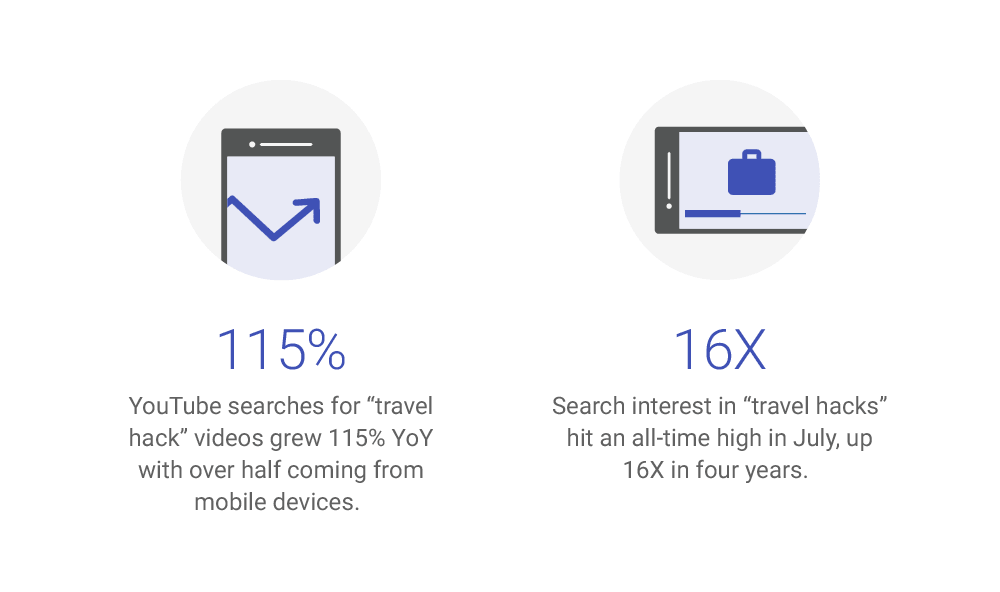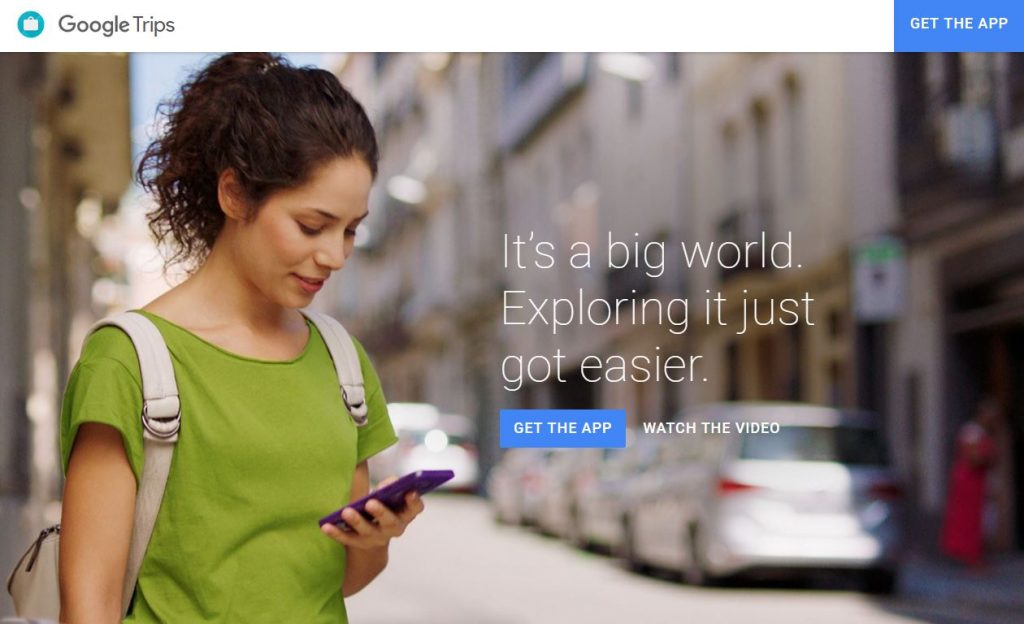As more travellers turn to Google and YouTube in micro-moments, marketers can get more insights: Who are they? Where do they want to go? How do they make decisions? This year, we’ve got the latest data to inform your media plan.
The reasons people travel haven’t changed much from year to year, let alone from decade to decade. And yet the paths people travel before they travel have been transformed. Consumers increasingly turn to mobile to get itinerary ideas, compare flight fares, or reserve experiences. These moments are what we at Google call micro-moments: decision points when a well-positioned brand can influence a consumer.
We looked across billions of searches to see travellers’ digital journey to this year’s hot spots. To build a complete view of path-to-purchase trends, we partnered with Sojern, a global performance marketing engine for travel brands, to layer on the company’s booking data from 350 million anonymised traveller profiles. The result: an unprecedented look at the traveller customer journey based on intent signals across online, mobile, and video channels.
This year’s emerging hot spots
In I-want-to-get-away moments, travellers turn to Search and YouTube for ideas and inspiration. As such, they’re great barometers for gauging people’s interest and purchase intent. What cities are getting a groundswell of interest? Looking at the fastest-rising searches from the first half of this year, a handful of destinations rose to the top:
1. Reykjavik
2. Havana
3. Toronto
4. Mexico City
5. Tokyo
Who’s interested in going to these cities? Consumer behaviour across the web shows who potential travellers may be, where they are, and other passion points.
YouTube is the travel-hack hub
Travellers don’t merely turn to the web to get ideas or inspiration for a trip; they’re also relying on it to get their trip right. YouTube is playing a larger role in time-to-make-a-plan moments, as more travellers go there for “travel hacks” — from ingenious luggage-packing techniques to tips for staying healthy on the flight over. Travel hack videos offer tips and advice for every stage of planning — from booking to packing.

Sources: YouTube Data, Worldwide, Jun. 2015 vs. Jun. 2016; Google Trends, U.S., Jan. 2012–Jul. 2016
Researching on mobile, booking on desktop
Though the lion’s share of bookings is logged on desktop (90%), 2 consumers are researching travel heavily on mobile. In fact, on weekends, mobile queries related to travel outpace those on desktop.

And interestingly, bookings for the top five rising destinations peak on Tuesdays, shortly after searches do.

Bookings aren’t a one-and-done, point-and-click proposition. Being visible throughout the mobile-intensive research process can help a brand stay top-of-mind when a traveller finally starts thinking purchase.
Travellers are using mobile to be spontaneous
With destination in hand, leisure travellers shift to anticipation mode: What’s the weather like? What are the unmissable attractions? But they no longer need to pack a bag of dog-eared guidebooks: Smartphones have become their on-the-ground research tools.
Mobile allows travellers to be spontaneous once they arrive.

Sources: Google/Ipsos MediaCT, “The 2015 Traveler’s Road to Decision,” base: U.S. leisure travellers, n=3,500, Aug. 2015; Google Consumer Survey, smartphone owners in the U.S. who have travelled internationally for pleasure in the last year, n=1,000, Jul. 2016
Learn more about how to plan for can’t-wait-to-explore moments and check out Google Trips, a new exploration app for travellers.

Source: Think With Google
Be updated with the latest trends on the web with the help of the digital marketing businesses listed on Top4.




